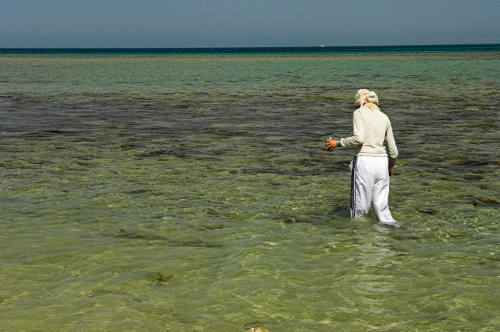Using AI to control energy for indoor agriculture
30 September 2024
Published online 20 December 2017
Seawater and saltwater ecosystems offer promise for a region running out of freshwater supplies.

© Charles Stirling (Travel) / Alamy Stock Photo
Clean, usable water sources in the Middle East are being depleted thanks to a large demand from agricultural food production, rapid population growth and the creeping effects of global warming. How arid the region is means that its water supply is already acutely finite.
Climate change is causing water to evaporate faster, and atmosphere is holding less. Rainfall patterns are sporadic, with some areas experiencing heavy downpours and more frequent floods. As well, droughts are increasing in frequency, with the latter lasting longer than they have historically.
The search for alternative water resources in the face of mounting freshwater insecurity is part of a larger quest for a sustainable future.
Daniel Ferber, executive editor of Grand Challenges at Springer Nature, introduces a series of features in which Nature Middle East looks at the water crisis and the opportunity that saltwater offers, and showcases the research – and the institutions – studying ways in which the Middle East can exploit the sea to produce clean, drinking water; to grow food and harvest energy; and to cultivate ecosystems that can mitigate the effects of climate change.
Shaking up salt-friendly agriculture
Harnessing solar and geothermal energy for water desalination
Water scarcity predicted to worsen
Navigating water shortage in the Arab Middle East
doi:10.1038/nmiddleeast.2017.174
Stay connected: